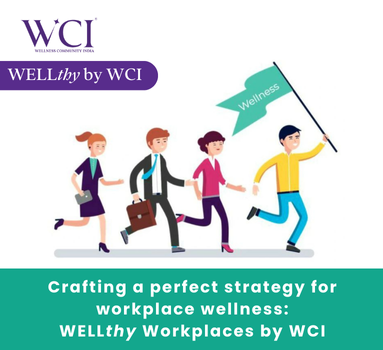
29 Apr 2024
No WOO MEN in the Boardroom
Let’s start with a quick reality check quiz:
1. Count the number of CEOs, both men & women that you know of. Do you think there is potential to reduce the gap?
2. Do you notice a significant gender disparity in senior leadership positions within your workplace, or other organisations that you are closely aware?
3. Have you felt unconscious bias based gender discrimination in assigning roles and responsibilities at your workplace or other social settings?
4. Have you observed instances where women are paid less than men for performing the same job despite having similar qualifications?
5. Are you truly empowering women, beyond DEI admissions, with skills and opportunities, such that they continue to excel even in leadership roles?
This isn’t just another blog on gender disparity, but an opportunity to check if we have done all that it requires to remove gaps in economic opportunities, job restrictions, income disparities and legal barriers hindering full participation of women leaders in shaping the corporate world. And true gender equality has to go beyond DEI entry goals. It has to ensure that women are continuously encouraged and empowered to perform their very best at every stage in their career and lives. Fostering gender equality is not just a tick the box obligation, but a strategic imperative for sustainable corporate and business success.
By now, we are aware that one of the most prominent aspects of gender disparity is the lack of women in leadership roles across the world. The Global Gender Gap 2023 report by World Economic Forum, stated that the representation of women in senior leadership roles, stood at 32.2% in 2023. In India, Economic Times had reported in 2022, that only 17.1% of board seats in India were occupied by women, and a mere 3.6% of board chairs were women.
Have we pondered on where this disparity begins? We know girls have excelled and outnumbered the boys in most cases in academics. In India, last week UPSC 2024 results – one of the toughest competitive entrance exams in the world – had 6 girls in the top 10 list. But when they step out in the corporate world, the reality is regretfully different as their career progresses. My mother who was from a prominent college of Science in Mumbai, was advised “don’t waste a medical seat and deprive a male student from becoming a doctor” by her professor, when she had got admissions into a medical college. This was from an era where it was assumed that girls will never be able to stay independently or work beyond a certain age (think marriage and motherhood). Things of course have changed in recent years, but there is still a long way to go to realise women’s potential at workplaces, especially senior leadership. There is an urgent call to action to recognise these gaps, and bridge the inequities, not just as a part of our workplace wellness goals but also larger societal and sovereign goals.
A top woman leader recently while discussing gender inequality recounted a shocking incident, where she discovered the absence of a women’s restroom on the board room floor. In response, the founder callously dismissed the concern, stating, “no woman is going to make it to this floor”. This incident starkly illustrates the deep-seated bias but also underscores the urgent need for greater awareness and education on gender sensitivity and inclusivity.
So where do we go from here? While we are whole-heartedly trying to embrace DEI, we also need to ensure that we provide relevant professional trainings and strategic growth opportunities to enable women to grow and perform their very best, and truly come at par in leadership roles. More than policy changes, it demands a cultural shift and a rethinking of traditional leadership hierarchies. It is crucial to acknowledge the persistent barriers they face, and commit to taking concrete actions to address this gender inequality, especially at leadership level. Let us challenge stereotypes, advocate for policy changes, and create supportive environments where all individuals, regardless of gender, can continuously thrive and contribute their fullest potential.
We at WCI, advocate for equitable and gender agnostic workplaces to foster highest levels of occupational wellness. In today’s rapidly evolving world, women play an increasingly significant role in the workforce, contributing unique skills, talents, and perspectives to drive innovation and growth. Our Workplace Wellness programs and Women Wellness advisory are focussed on the principles to promote DEI at workplaces and beyond. Best practices for bridging the gender gap in workplaces have included initiatives towards implementation of equal pay for equal work policies, adoption of flexible or compressed work arrangements, women’s professional development and leadership advancement through mentorship, training, and networking groups, amongst many others. Read more about WCI’s wellness advisory services at https://wci.org.in/advisory-services/
As we reflect on the state of women in the workplace, let us take a pledge today, to do everything within our capacity to make it a truly inclusive world. A world where gender equality is not just an aspiration, but a reality ingrained in every aspect of life.
Let’s pledge:
“I pledge to advocate for gender equality at my workplace and support initiatives that appreciate and promote diversity, equity and inclusivity at all levels. Together, we will strive to create a world where everyone has equal opportunities to succeed and thrive.”







